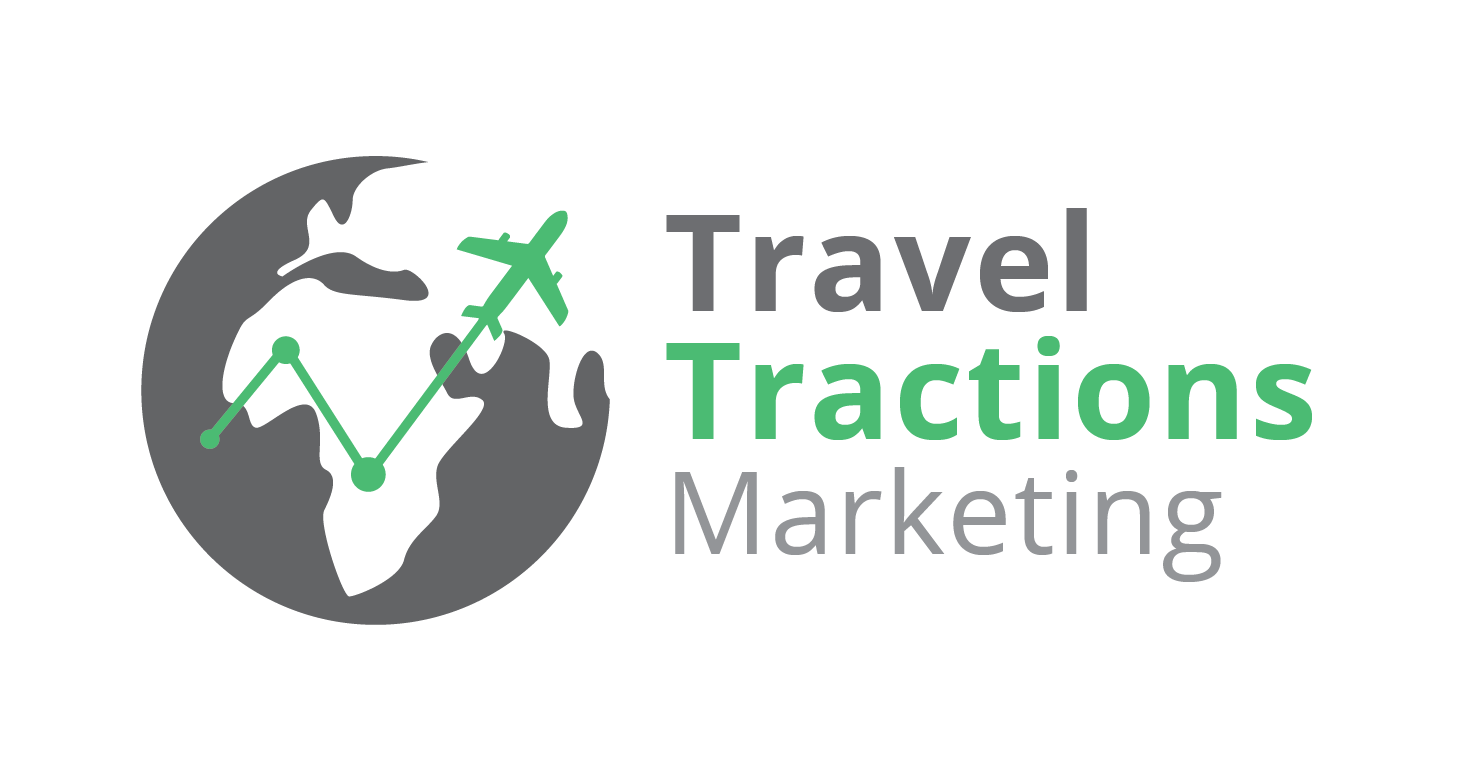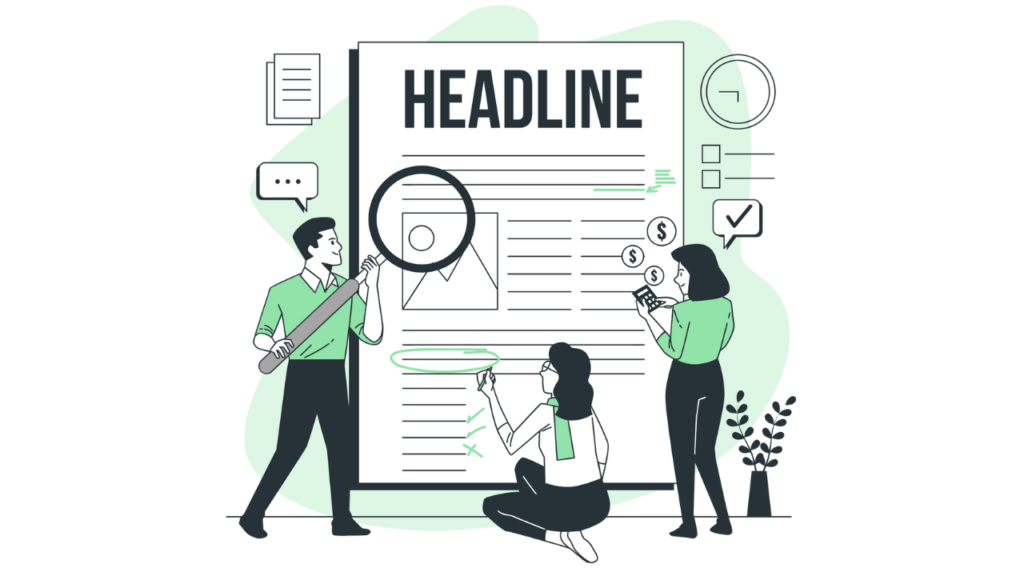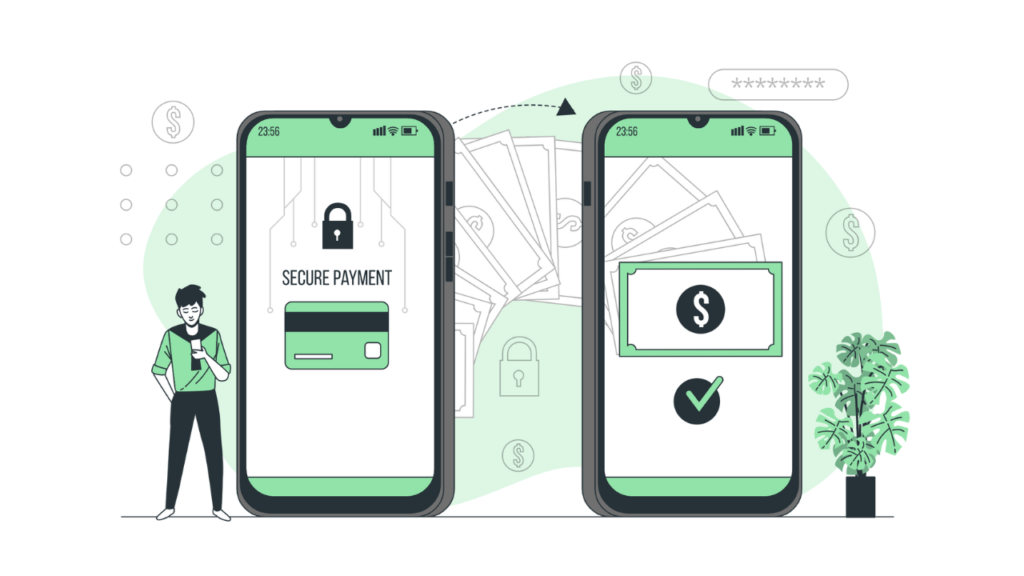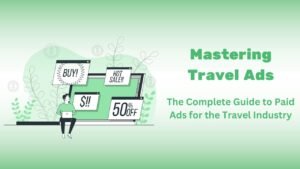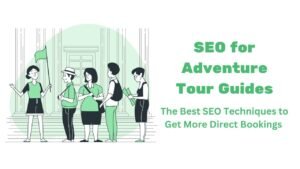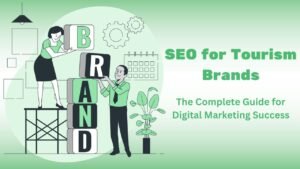
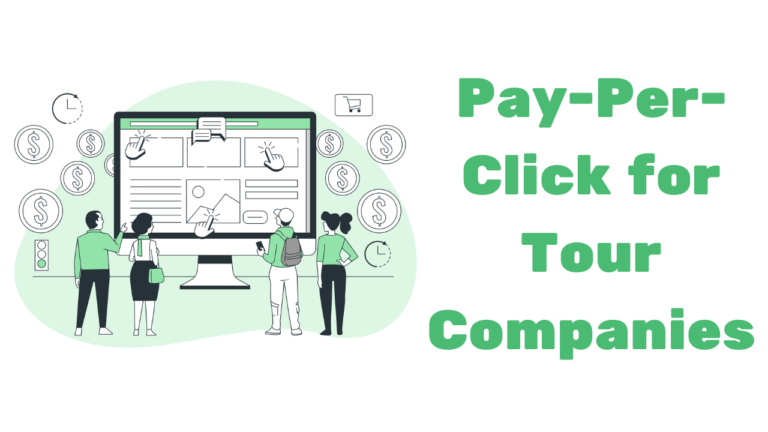
A Complete Guide to PPC for Adventure Tour Companies
If you own a tour company, you know that the key to success is making an impression on potential clients. There are various marketing techniques you can adopt, but if you need instant results, PPC is the way to go.
With PPC for adventure tour companies, you’ll see enquiries and bookings coming in from the moment you launch your campaign. They are an essential factor in practical marketing efforts, and with some crucial know-how, you can start reaping the rewards of a well-structured PPC campaign. To help you get started, here’s a detailed guide on how to do PPC for tour operators.
What Google Ads Campaigns Are and How They Work for Tour Companies
These days, paid ads appear in multiple formats across search engine results pages, ranging from small, text-based ads that appear alongside organic search results to scrollable carousel ads. Tour companies can even have sponsored listings on Google Maps for their businesses or hotels.
With PPC as part of your marketing strategy, you can target potential customers who are actively searching for what you have to offer. The best part? You only pay when someone clicks on your ad.
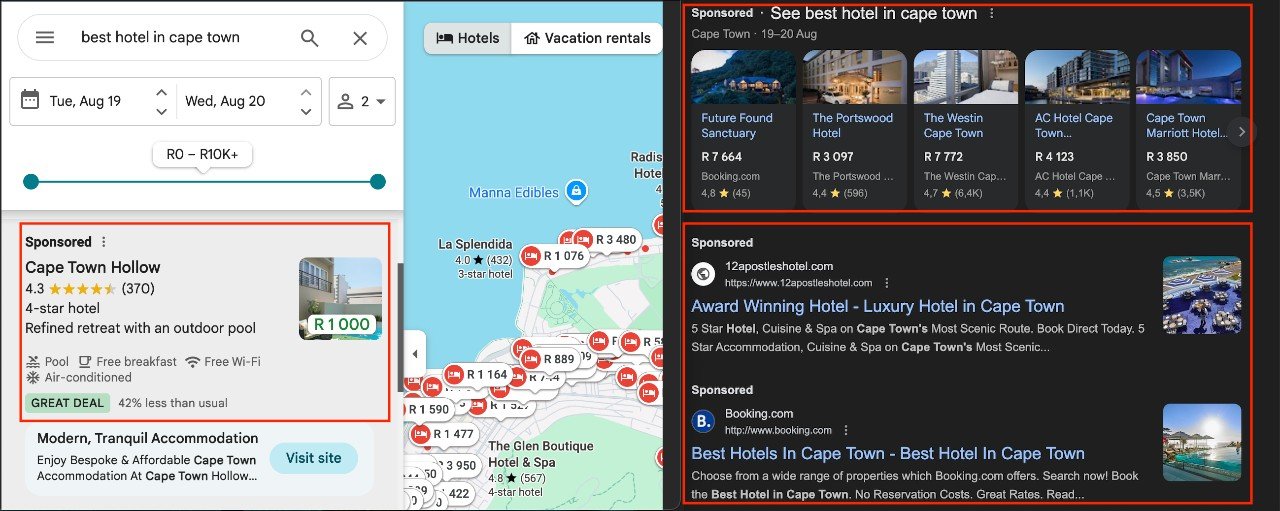
(example of varied PPC listings)
Understanding PPC for Tour Operators
PPC is a form of online advertising where businesses can pay to have their ads displayed on search engine results pages (SERPs). When a user clicks on one of these ads, the company pays a fee out of its advertising budget to the search engine. PPC can be effective in helping you drive traffic to your tour packages and generate leads, but it’s essential to understand how it works before diving in.
For starters, PPC ads are auction-based, meaning businesses bid on keywords on which they want their ads to appear. The amount that you’re willing to pay per click, AKA cost per click (CPC), will determine your ad’s placement in the SERPs. In other words, the higher your CPC, the more likely your ad is to appear at the top of the page.
However, how much you pay isn’t the only thing that determines your rank. You’ll also need to consider your ad quality score, which is determined by factors such as click-through rate (CTR), relevance, and the overall landing page experience.
As such, a high-quality score can help you get more bang for your buck. That means you can outrank competitors who bid more but have worse ads. So, it’s essential to focus on creating compelling ads that are relevant to your target audience.
How Tour Operators Can Benefit From Ad Spend
If you’re a tour operator, you know that most business begins with getting people on your website. Sure, you can realistically do this organically through SEO for travel websites, but there’s no guarantee that you’ll outrank your competitors. That’s where PPC advertising comes in.
But how does PPC work for adventure tour companies? It’s a great way to attract targeted traffic to your site. And because you only pay when someone clicks on your ad, it’s a very cost-effective way of marketing your business.
The Benefits of Paid Ads for Tourism & Tour Companies
As tour and activity operators, there’s no reason why you shouldn’t be incorporating PPC into your digital marketing strategy. Here are a few benefits of doing PPC ads for travel websites like yours.
Gain Targeted Traffic
PPC is an effective way to gain online visibility and reach your target market. By targeting relevant keywords to your business, you can ensure your ads are seen by people interested in what you offer.
Not only that, but your targeted ads can result in website traffic at specific points in the sales funnel. Depending on the high-intent keywords you select, you can target individuals who are ready to book their tour. You can also target someone who’s still planning a trip a year in advance, just to keep your brand at the top of their mind.
Immediate Results
One of the key benefits of pay-per-click advertising for tour operators is that you can achieve instant results the moment you set up your campaign. You can set up your search ads today and get your first booking in a few hours. However, this isn’t always a guarantee.
In comparison, other forms of marketing, such as search engine optimization, digital marketing, and display advertising, can take time to bring in leads and conversions.
Build Brand Awareness
Paid advertising is an effective way to enhance your brand’s online visibility. With this type of advertising strategy, you can create advertisements that feature your brand logo and tagline, which can help to increase brand awareness and recognition.
PPC is particularly powerful for building brand awareness for newer tour companies that can’t compete with more established brands on organic SERPs.
Cost-Effective
PPC for the travel industry can be a cost-effective way to generate leads and sales. While the initial investment may be higher than other forms of marketing, the more you test and optimise your ads, the cheaper they get.
Plus, you’ll only pay when someone clicks or converts, which means that you’re more likely to see a return on your investment (ROI). Additionally, you can control your spending to the last cent by setting a maximum ad budget.
Encourage Customers With Direct Bookings
With compelling ad copy, precise targeting, and strategic CTA placements, you can be the final push your audience needs to make direct high-value bookings with you. In the tourism business, you need all the help you can get to stand out. So, getting that extra boost from a well-planned paid ad strategy could be all you need to make sales, build brand visibility, and establish trust.
Setting Up a PPC Campaign for Tour Companies
PPC is ideal for targeting and reaching potential customers, but how do you approach it? The starting point for Google Ads for adventure tourism operators is setting up your campaign.
However, setting up a successful PPC campaign is not always easy. In addition to doing keyword research, you also need to create compelling ad copy and landing pages. These tasks can be challenging to do on your own, but worry not. You can follow these steps to create the campaign of your dreams.
Note: The focus here is on advertising on search engines rather than social media platforms.
Step 1: In-depth Keyword Research
The cornerstone of any successful PPC campaign is targeting the right keywords for travel and tourism. Choose cost-effective keywords that target your audience at a crucial moment in their research journey, and you’ll reap the rewards. Fail to do so, and you’ll pay for unqualified traffic.
There are plenty of tools you can use to find relevant keywords you should be targeting, including Google Ads Keyword Planner and paid tools like Ahrefs and Semrush. For tour operators with existing websites, you can also utilize Google Search Console.
In the beginning, you want to try to use keywords that target potential customers but can also reach new audiences. Thereafter, you can use audience segmentation on these keywords and focus on those showing potential and discarding those that waste the budget.
Furthermore, you should target long-tail keywords, as generic terms are likely to be contested by industry giants with a strong digital presence. For example, instead of targeting keywords like “Kenya safari”, try bidding on keywords like “Kenya safari guided tours with lunch”.
Step 2: Create Compelling Ad Copy
After finding the perfect keywords, you need to create incredible ad copy. There’s no point if the correct keywords can trigger your ads, but you get no clicks because the copy isn’t relevant or enticing.
Start by researching your target audience. What are their needs and pain points? What kind of language do they use? You’ll notice that the best adverts for tourism focus on solving the problems of their potential customers.
Once you have a good understanding of your audience, you can start brainstorming some potential ad headlines. Keep it short and to the point — you only have a few seconds to capture someone’s attention. Ensure they capture the searcher’s attention and address their pain points as quickly as possible.
After that, there are short descriptions that give more context to your headline. Descriptions should be clear and concise, providing enough information to persuade someone to click on your ad.
Finally, your call to action (CTA) should be strong and compelling, urging the reader to take the next step. By following these simple tips, you can create ad copy that will help you get the most out of your PPC campaigns.
Step 3: Dedicated Landing Pages
Once your copy is taken care of, the creation of high-converting landing pages is next on the agenda.
A landing page is a standalone web page that is designed specifically for conversion. It should have a clear and concise headline, compelling copy, and a strong CTA. In addition, the page should be free of distractions like sidebars and navigation menus. You’ll also need to provide relevant and targeted content that speaks to the needs of your audience.
Finally, ensure your landing page is optimised for mobile, as over 60% of web traffic comes from mobile devices.
Step 4: Set a Budget
Setting a budget for your pay-per-click advertising campaigns is critical. You don’t want to be donating money to Google with unjustified expenditures, but you also don’t want to spend too little. There are a few factors to consider when determining how much to spend.
However, you won’t be immediately able to determine your budget without doing a test run of each campaign or without concrete comparisons. So, be prepared to spend a few hundred dollars before knowing exactly how much to spend.
At the most basic level, you’ll need to decide how much you’re willing to spend per click. This will depend on metrics like the average cost per click in your industry and the average conversion rate for your campaign.
After a few experiments, you may want to focus on your ROI and set a target return on ad spend (ROAS). These advertising efforts are perfect for reducing costs while maximising potential revenue.
Generally speaking, expect to spend at least $1 per click while doing travel agency advertising. Of course, this depends on the keyword match type you use.
Your spending will also depend on the type of bidding strategy you use. The most popular ones are maximising clicks for traffic, maximising conversions, and targeting return on ad spend.
Step 5: Data-Driven Adjustments
With the key steps sorted and your campaign underway, there are some extra steps you can take to get the best tourism ads for your business.
The first is personalising the landing pages, as well as the ads themselves. Doing so can lead to increased clicks and conversions. The best way to do this is by using the A/B testing feature, which allows you to run comparisons of campaign performances.
Once you have the results of your initial tests and your general campaign performance, you can begin making some data-driven adjustments.
You’ll also want to keep an eye on your reputation based on the reviews left on your website or wherever your company appears. For example, a negative reputation on Google My Business can jeopardise you, even if everything else is perfect.
Optimising a PPC Campaign
PPC campaigns can be highly effective, but only if they are appropriately managed. A large part of managing paid ads is optimising them to maximise your returns. The difference between long-lasting and successful travel advertisements and those that only enjoy a brief period of success is how well they’re optimised.
1. Modify Your Budget and Keywords
As the campaign runs, it will pick up some search terms that you hadn’t been bidding on and will also be used for some of your keywords.
Analyse the results to modify your keywords, adding negative keywords that you don’t want to show up for. You can also add keywords from the search terms.
Additionally, this is the perfect time to adjust your budget as necessary to ensure you aren’t over- or underspending.
2. Adjust for Seasonal Changes
As a tour provider, you know travel season trends change often. The holiday season can experience a significant surge in search activity and consumer interest, particularly in the tourism industry. This increase drives higher competition for ad space and often higher campaign costs. Adjusting your bids during this time is thus imperative for a successful strategy.
In the off-season, bid and CPC costs are typically lower, offering an excellent opportunity to reinvest this budget elsewhere. This also gives you a greater chance to get targeted visibility, allowing your brand to stay top of mind all year round.
Keeping this in mind is essential for PPC as it will signal which experiences you should promote at different times of the year.
3. Make the Booking Process as Quick as Possible
After running your ads for some time, you should be able to determine the conversion time and how long it takes for some customers to exit your landing page.
If the majority of people who visit your landing page leave after a few clicks or seconds, it’s likely an indication that the booking process is too long.
You can streamline the process by including only the necessary fields, adding a “Contact us” box, and incorporating other elements that help simplify the booking process. These are likely to boost conversion rates.
4. Bid on Branded Terms
This isn’t something you’ll need to worry about initially. However, the more successful your PPC campaign gets, the more you’ll need to consider it.
After all, competitors that are losing to your company may start bidding on your keywords to build brand awareness. If you aren’t bidding on branded terms, they’ll be the first thing that appears on searches for your brand.
5. Focus on Prospective and Existing Customers
Above all, search intent and quality are key. To maximize success, online travel agencies must tailor their search strategies to both prospective and existing customers. Understanding search intent helps capture travelers at the right stage: those researching ideas or those ready to book.
For example, adventure tour operator PPC campaigns will look slightly different from those of a wellness retreat. Prioritizing search quality and intent results in more effective targeting, increased visibility, and higher conversion rates.
6. Include Call to Actions
Beyond getting users to click on your advertisement based on ad relevance, you also need to guide them towards your desired actions through CTAs. Effective call-to-actions eliminate ambiguity and directly tell users what to do. Good examples of these are: ‘get a quote’, ‘click here to find out more’, and ‘book your seat’.
7. Focus on Quality Over Quantity
At the start of your campaign, you’ll want a variety of ads using different copy and CTA techniques. Once you’ve determined what works for your brand, you’ll want to refine your offerings, prioritizing quality over quantity.
This is the way you should think when doing PPC for the tourism industry to ensure you present your best self and achieve the best ROI.
FAQs about Pay-Per-Click for Tour Companies and Operators
What Is PPC in the Travel Industry?
PPC, like Google Ads campaigns, in the travel industry looks very similar to that in any other industry. These include PPC call ads, search ads, social media ads, video ads, and more, which will promote what your travel agency offers and its unique selling points to its potential travelers.
What Tourism PPC Services Do You Offer?
Besides campaign management, we offer a range of PPC services designed specifically for the tourism industry. These include content marketing, writing compelling ad content, keyword targeting, performance analysis, and reporting.
How Much Do Tour Companies Spend on Marketing?
How much a tour company spends on digital marketing depends on its advertising budget. Typically, this is between 5–15% of its total funding, but it can vary depending on company size, goals, and target market.
Wrapping Up PPC Advertising for Adventure Tour Companies
As a tour company, PPC can be a great way to attract new customers and boost your business. By following the tips in this blog post, you should be well on your way to creating a successful PPC campaign that brings in new bookings.
So what are you waiting for? Get started on your campaign or get in touch with us if you need help!

